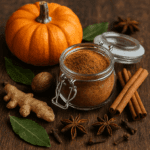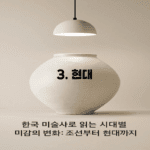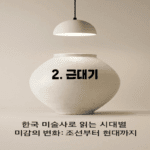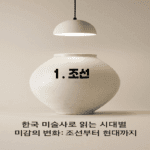s it already hot summer? It has begun,
These days, the heat and sunlight are much hotter and more sweltering than before.
This season is especially difficult for working housewives who juggle work and housework.
Heat-related illness can happen to anyone during a heat wave, and in severe cases it can even lead to death.
In this article, we will provide detailed information on prevention methods for each type of heat-related illness during a heat wave for working housewives.
1. Risk factors for heat-related illnesses experienced by office workers and housewives working in heat waves
1.1 Prolonged outdoor exposure
Office workers and housewives who spend a lot of time outdoors, such as working outdoors, doing outdoor activities, or commuting to work, are directly exposed to hot sunlight and high temperatures, increasing the risk of heat-related illness.
You should be especially careful if you do hard work outdoors, such as construction site workers, farmers, or delivery drivers.

1.2 Decrease in stamina
Due to a busy daily life, lack of exercise and irregular eating habits lead to a decrease in physical strength.
As your physical strength decreases, your ability to regulate body temperature decreases, making you vulnerable to heat-related illnesses.
You need to be especially careful if you rarely exercise or are a picky eater.
1.3 Lack of moisture
During the hot summer months, you sweat a lot, causing serious water loss.
However, because you continuously sweat even if you do not feel thirsty, it is easy to fall into dehydration.
Dehydration is a major cause of heat-related illness, so drinking enough water is very important.
1.4. enclosed space
As indoor temperatures in the office or home rise, it becomes difficult to regulate body temperature, increasing the risk of heat-related illness.
In particular, you must be more careful if the air conditioning facilities are not good or ventilation is insufficient.
1.5. underlying disease
If you have underlying diseases such as cardiovascular disease, diabetes, or obesity, you are more vulnerable to heat-related illnesses.
This is because these diseases weaken the body’s ability to regulate body temperature or interfere with sweat secretion.
Therefore, you should be more careful if you have an underlying disease.

2. Prevention methods for each type of heat-related illness during a heat wave for office workers and housewives
Exposure to sunlight is generally between 10:00 AM and 4:00 PM. The sunlight is strongest during this time, especially around 12:00 PM.
Therefore, it is recommended to protect your skin during these times by resting in the shade or wearing appropriate protective clothing. 😊
So what are the types of thermal baths?
2.1. heatstroke
●Symptoms: Extreme thirst, sweating, fatigue, dizziness, headache, muscle cramps, increased body temperature.
● preventive
• Drink plenty of water (1 to 1.5 liters per hour): Drink water before you feel thirsty.
• Wear light clothing and a hat: Wear thin, well-ventilated clothing and a hat to block the sun.
• Take frequent breaks in the cool shade: Take breaks in the cool shade for about 10 minutes every hour.
• If you sweat a lot, take an electrolyte drink: You can replenish water and electrolytes at the same time.
• Limit alcohol and caffeine intake: Alcohol and caffeine can worsen dehydration.
2.2. heat dehydration
●Symptom
• Thirst: Even if you drink a lot of water, you still feel thirsty and your mouth feels dry.
• Vomiting and diarrhea: Dehydration can cause gastrointestinal distress, resulting in vomiting and diarrhea.
• Dizziness, headache: You may feel dizzy and headache due to a decrease in blood flow to the brain.
• Fatigue, muscle cramps: Dehydration can reduce your stamina and cause muscle cramps.
• Exhaustion: Severe dehydration may cause symptoms such as extreme fatigue, confusion, and decreased consciousness.
● preventive
① Drink enough water (use a hydration schedule):
• You should drink water before you feel thirsty. In particular, you should drink enough water before, during, and after exercise when you sweat a lot.
• Calculate the amount of water needed per day by considering the individual’s physical strength, activity level, environment, etc., and drink water consistently to maintain a balanced hydration supply.
• It is also a good idea to create a habit of drinking water consistently by using a mobile phone app or the scale on the water bottle.
② Electrolyte replenishment (consumption of electrolyte beverage)
• Because sweat contains not only water but also electrolytes, consuming an electrolyte is more effective than simply drinking water.
• Among the various types of isotonic drinks sold on the market, it is recommended to choose a product with low sugar content and moderate sodium content.
• You can make a simple electrolyte drink at home by mixing lemon juice, salt, and sugar.
③ Eat a light meal
• If dehydration is severe, it is helpful to lightly consume easily digestible foods such as rice or noodles.
• It is more effective when consumed together with foods with high water content such as fruits and vegetables.
• It is best to avoid foods that are too spicy or oily.

④ Take a cool shower or bathtub
• Cooling down in the shower or bathtub helps lower body temperature and improve blood circulation.
• Water that is too cold can actually constrict blood vessels, so it is recommended to use lukewarm water.
• After showering or bathing, you should drink enough fluids to prevent dehydration.
● caution
• If you already have a serious illness, if your symptoms of heat dehydration are severe or do not improve, you should visit a hospital immediately.
• Infants, young children, and the elderly have a weak ability to regulate body temperature, so extra care must be taken.
In addition to this, you can prevent heat dehydration in the following ways:
• Avoid sunlight and rest in cool shade.
• Wear loose-fitting, breathable clothing.
• Avoid heavy exercise or labor.
• Limit alcohol and caffeine intake.
2.3. heat cramps
● Symptoms: Sudden, severe pain, cramps in muscles
● preventive
• Drink plenty of fluids and replenish electrolytes: Drink plenty of fluids and electrolytes before, during, and after exercise.
• Stretching and muscle relaxation exercises: Stretch sufficiently and relax your muscles before and after exercise.
• Avoid excessive exercise and labor: Avoid excessively strenuous exercise or labor and get plenty of rest.
2.4. thermoencephalopathy
●Symptoms: Extremely high body temperature (above 40℃), decreased consciousness, seizures, hallucinations
first aid
• Immediately move to a cool place: Block sunlight and move to a cool shade or indoors.
• Cool your body with cold water (towel compress, shower): Cool your face, neck, armpits, etc. with cold water.
• Call 119 for an ambulance: In serious cases, immediately call 119 for an ambulance.

3. Housewives no longer have to worry about skin damage during the heat wave! Complete Skin Protection Guide
During the hot summer season, heat waves have a significant impact on skin health.
In particular, office workers and housewives are more vulnerable to skin damage due to outdoor activities, closed indoor environments, and busy daily lives.
But don’t worry!
We will tell you the perfect skin protection guide for working housewives during the heat wave.
3.1. Apply sunscreen thoroughly
• The most important way to protect your skin is to thoroughly apply sunscreen.
• It is important to use a broad-spectrum sunscreen with SPF 50 or higher and repeat application every two hours.
• Apply sunscreen 30 minutes before going out, and apply it evenly to all exposed areas, including the face, neck, ears, backs of hands, and tops of feet.
• Excessive sweating or moisture may reduce the effectiveness of UV protection, so it is recommended to check and reapply frequently.
3.2. Keep skin cool and moist
• During the hot summer months, your skin can easily become dry.
• Therefore, it is important to drink enough water and use a moisturizing cream or jet pack to keep your skin cool and moist.
• Especially after washing, your skin may become even drier, so it is recommended to apply moisturizing cream or jet pack right away.
• It is also a good idea to soothe your skin using aloe vera gel or pack.
3.3. Sweat and sebum management
• During the hot summer months, a lot of sweat and sebum are produced, which can make your skin feel sticky and uncomfortable.
• Therefore, it is important to remove sweat and sebum and keep the skin clean.
• Wash your face thoroughly using a cleansing agent or face wash that does not irritate the skin, and prepare your skin with toner.
• If you sweat a lot, it is recommended to wash your hands frequently and use a portable paper towel to wipe off the sweat.
3.4. Remove makeup thoroughly
• If you are wearing makeup, you should thoroughly remove it before going to bed.
• Use a makeup remover to remove makeup and thoroughly wash your skin with a cleanser.
• After removing makeup, it is recommended to moisturize the skin using a moisturizing cream or jet pack.
3.5. Healthy eating and lifestyle habits
• Healthy eating and lifestyle habits are also important to maintain skin health.
• Maintain skin health by drinking enough water, eating foods rich in vitamins such as fruits and vegetables, and getting enough sleep.
• Smoking and excessive drinking are harmful to skin health, so it is best to avoid them.
• Regular exercise improves skin circulation and helps relieve stress.
The skin is our body’s largest organ and plays an important role in maintaining our health.
Therefore, please practice the methods suggested above to keep your skin healthy even during the heat wave. For more detailed information, it is recommended that you consult a dermatologist.

4. Final summary of basic preventive measures to prevent heat-related illnesses
To prevent heat-related illnesses during the hot summer season,
• Drink plenty of water (1 to 1.5 liters per hour): Drink water before you feel thirsty.
• Apply sunblock, wear light clothing, sunglasses, and a hat: Wear thin, breathable clothing and wear a hat to block the sun.
• Take frequent breaks in the cool shade: Take breaks in the cool shade for about 10 minutes every hour.
• Consume isotonic beverages if you sweat a lot: You can replenish water and electrolytes at the same time.
• Limit alcohol and caffeine intake: Alcohol and caffeine can worsen dehydration.
Please take note and stay healthy during this hot summer heatwave to avoid heat-related illnesses or skin diseases.
No matter how much you avoid the heat wave, sunburn is inevitable.
If possible, the best way to achieve a shiny, cool copper color is to make your skin look healthy and elastic.It’s also true 😊









![[3편] 《미술사는 왜 시장을 움직이는가》: 팝아트와 대중 자본의 만남, 앤디 워홀의 시장 전략](https://1gonow.com/wp-content/uploads/2025/06/003-150x150.png)
